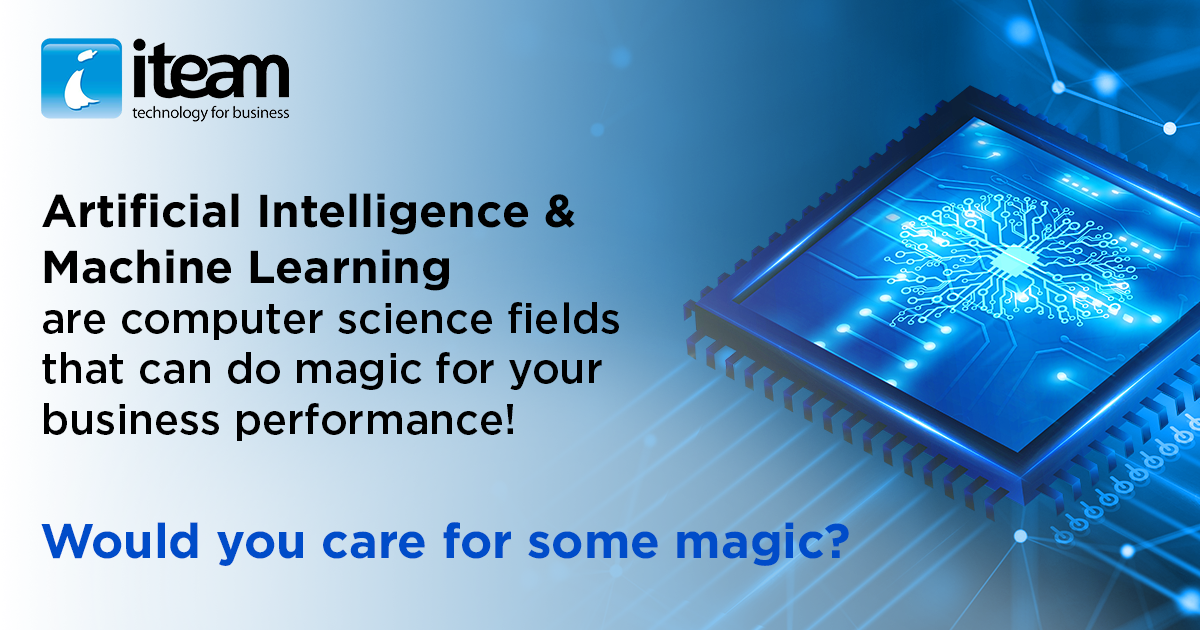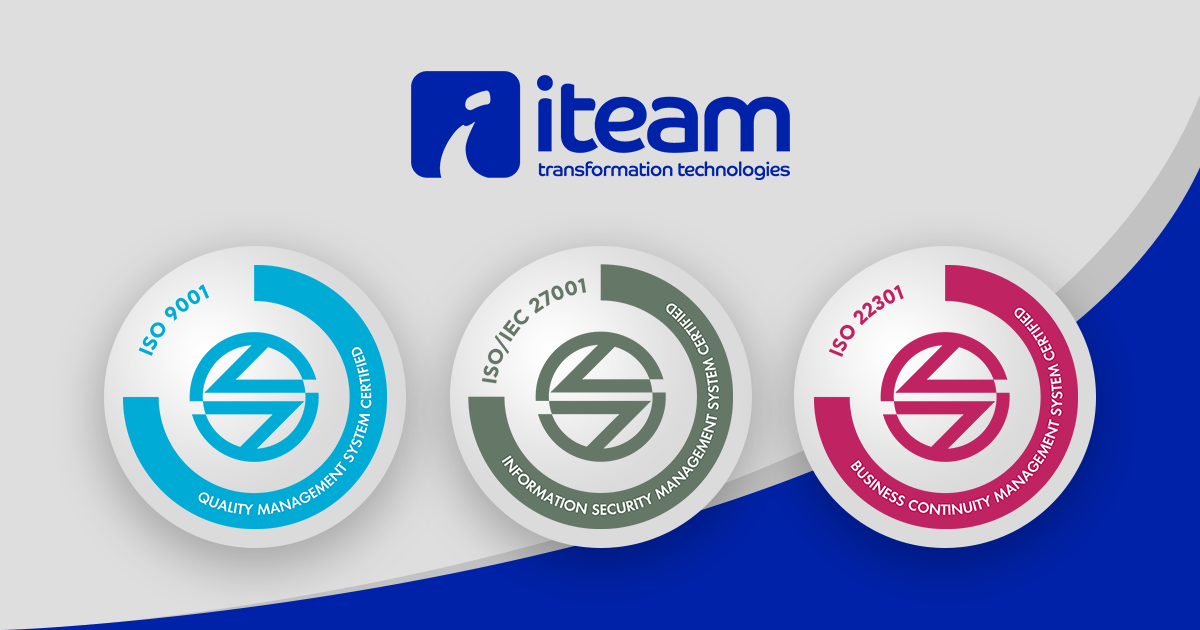We are happy to announce that we have been simultaneously certified as: ISO/IEC 27001:2013 (Information…

Artificial Intelligence & Machine Learning
Artificial intelligence (AI) is a broad and general term that refers to any type of computer software that engages in humanlike activities, including learning, planning and problem-solving.
Rather than serving as a replacement for human intelligence and ingenuity, artificial intelligence is generally seen as a supporting tool, since it is adept at processing and analyzing troves of data far more quickly than a human brain could.
Following the processing and analysis of data (either structured on unstructured), AI software can provide synthesized courses of action and present them to the human user.
Today one of the most popular and prevailing types of AI in development for business purposes is Machine Learning (ML). ML provides a set of algorithms able to categorize data, make forecasts, detect abnormalities, recognize patterns and, in general, “learn” through data.
Indicative Applications of Machine Learning
Revenue Optimization
- Advanced Sales Forecasting
Various market data, demographics and other variables are utilized by Machine Learning algorithms for more accurate sales forecasting.
- Churn rate prediction
Accurate prediction of whether certain types of your customers intent to leave and when, allowing you to take actions to prevent this from happening.
- Customer Lifetime Value Analysis
Machine Learning models predict Customer Lifetime Value (CLV), the total monetary value of transactions/purchases made by a customer with your business over his entire lifetime with your company (time period till your customer switches to a competitor of yours), so that your company can concentrate activities around your most “profitable” clients.
- Dynamic Pricing
Machine Learning algorithms can generate optimized prices to maximize revenue by analyzing market variables and demand, taking into account historical data and emerging trends. Prices change dynamically multiple times per day, reacting to market conditions and inventory (e.g. flights, accommodation).
- Price prediction
Customer facing applications use Machine Learning to estimate future prices to inform customers when it would be best to buy a product (e.g. flight). Similarly, internal analytics systems can estimate future prices of raw materials so that the company can schedule optimal purchase timings and can also guide the company’s pricing policy based on intelligence related to competitors’ pricing.
- Fraud Detection
Banks and other payment organizations can use Machine Learning to locate fraudulent transactions, insurance firms can use it to identify fake claims and ecommerce can use it to detect fake product reviews among other things.
Product and Services Personalization & Recommendation
When users interact with large inventory of products and/or sources, it is very useful to give them some guidance through recommendations that are based on their preferences.
Amazon, Netflix, Spotify, YouTube apply AI driven systems and ML algorithms to analyze your preferences and suggest what you might like to watch or listen next.
Similarly, travel booking systems like Expedia and Booking analyze your sales history and behavior and make relevant recommendations.
Predictive Maintenance
Companies that use heavy machinery can accurately predict failures and adjust their maintenance schedule via gathering data from sensors that feed Machine Learning algorithms.
Natural Language Processing | Speech Recognition | Speech Generation
ML recognizes speech, extracts entities and analyses intentions, conducts sentiment analysis, and even generates answers.
Chatbots are getting smarter each day via machine learning. They’re learning to understand human language better than ever before, and they’re getting smarter when it comes to recognizing tone, mood and shades of meaning.
Same applies for machine translation systems and virtual assistants such as Amazon Alexa, Cortana (Microsoft), Siri (Apple), and Google Assistant, that are all based on Machine Learning algorithms.
Computer vision
Various advances in surveillance cameras, self-driving cars, Snapchat filters and medical imaging techniques such as MRI and X-rays, are based on Machine Learning algorithms.
The list of applications in business is endless!
The potential of Machine Learning is actually limitless! Thus, a lot may think that AI and ML are magical, but this is certainly not true. AI and ML are built on the theoretical underpinnings of Mathematics, Statistics and Computer Science and even though they are not magical they are able to produce magic.
Having built a solid experience in Business Intelligence, iteam S.A. has expanded in the fascinating word of Artificial Intelligence & Machine Learning.
Our team of certified Machine Learning engineers are adding more intelligence to the solutions we provide to impact the future of clients that have chosen us.
Would you care for some magic?
Check out our ML services here.



